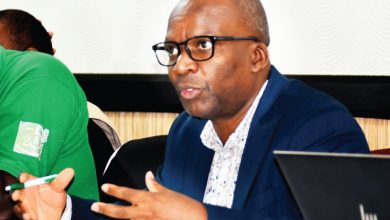Chembezi vows to jumpstart ACB
Newly appointed acting director general of the Anti-Corruption Bureau (ACB) Gabriel Chembezi says he plans to focus on prevention, enforcement and public education in the fight against corruption.
Chembezi, who met with ACB directors last Tuesday, also pledged to revive stalled high-profile cases, strengthen forensic investigation capabilities and implement lifestyle audits for public officials.

The new ACB boss assumes leadership of the bureau amid persistent funding challenges, staffing constraints and public scrutiny regarding the institution’s independence.
His appointment also follows legal controversy, with some experts previously describing similar unilateral appointments as irregular.
In an interview last week, Chembezi detailed his immediate operational priorities centred on three key areas.
“In the area of enforcement, I will with immediate effect, revive investigation and prosecution of all cases that have stalled in the past years to ensure proper accountability for suspected corruption cases,” he said.
Chembezi added that he already directed immediate steps to enhance the bureau’s capacity to investigate complex complaints by strengthening its forensic department.
According to him, substantial effort will also be directed towards non-conviction based asset forfeiture of proceeds of crime.
When asked about the bureau’s independence, which is a concern among anti-corruption advocates, Chembezi said the bureau will continue to be an independent body in its operations as prescribed by law, adding that it will not allow any interference in the execution of its mandate.
On staffing shortages, Chembezi disclosed that government has recently approved a new structure, which has increased the staff establishment from 287 to 489 employees, saying he plans to soon engage the Department of Human Resources Management to give the graft busting body authority to start recruiting.
He said: “Our priority on prevention would be increasing our oversight in key government programmes and procurement contracts, as well as putting in place guidelines for lifestyle audits.”
Meanwhile, some analysts have cautiously welcomed Chembezi’s commitments while stressing the need for tangible action.
In an interview yesterday, Centre for Human Rights and Rehabilitation (CHRR) executive director Michael Kaiyatsa said the pledge to revive stalled cases and operate independently is a positive and much-needed commitment.
He observed that the public has long been frustrated by the slow pace and perceived selective pursuit of corruption cases, so a renewed focus on accountability is encouraging.
“These promises must translate into visible action. Reviving old cases should not be symbolic; it must result in tangible progress, including prosecutions and asset recoveries where warranted,” said Kaiyatsa.





